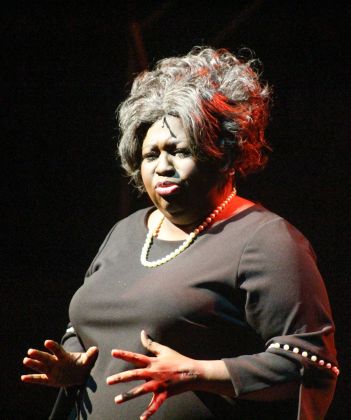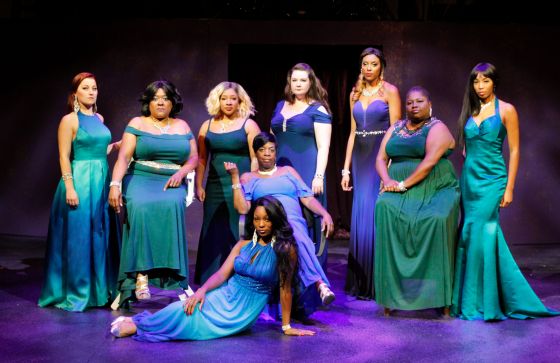

Federico Garcia-Lorca once defined duende as "a mysterious power that all may feel and no philosophy can explain." The same enigma may be applied to the concept of "Soul Music"—a predominantly (though not exclusively) African-American artistic genre associated with individual expression of intense emotion arising from personal or tribal experience, typically manifested in embellishments such as key changes, cadenzas and spoken-word asides. What distinguishes the female voice of Soul, however, is the subtext of defiance injected into even the most docile of lyrics. Take for example, the classic "Hound Dog"—written by Tin Pan Alley-composers Jerry Leiber and Mike Stoller, but when delivered by Big Mama Thornton, transformed into a diatribe worthy of royal decree, or "Respect"—Otis Redding's masculine whine converted by Aretha Franklin into an equal-opportunity demand. Indeed, the roster of iconic compositions embodying this ethos, as evidenced by the nine treble-range vocalists (and one baritone) in Black Ensemble's musical cavalcade, emerges as nothing less than a pantheon of women bearing witness to the precepts of independence, both in their music and in their own lives. These encompass such gospel luminaries as Mahalia Jackson and Mavis Staples, rhythm-and-blues pioneers like Etta James and Jill Scott, boom-generation idols like Diana Ross and Donna Summer, all the way up to such recent headliners as Anita Baker, Whitney Houston and, of course, the late "Queen of Soul" Aretha Franklin. White-girl Soul is given its due, too, in Texas-born Janis Joplin and British crooner Amy Winehouse (covering Ruby and the Romantics' "Our Day Will Come"). Hip-hop warblers get their moment in an Old School/New School sing-off, while songwriter Rick James redeems a long line of bossy male spouses and sidekicks. Two-and-half hours (plus intermission) is not enough to honor to all those deserving thereof—a shortcoming acknowledged by emcees Rhonda Preston and Cynthia Carter—and many playgoers may lament the absence or abbreviation of their favorite anthems or the often fast-and-furious renditions offered by a cast sprinting through a marathon array of costumes and wigs. All that notwithstanding, author/director Daryl D. Brooks' revue may be viewed as a chronicle of feminine progress, in addition to a showcase for some of Chicago's most auspicious rising stars.
